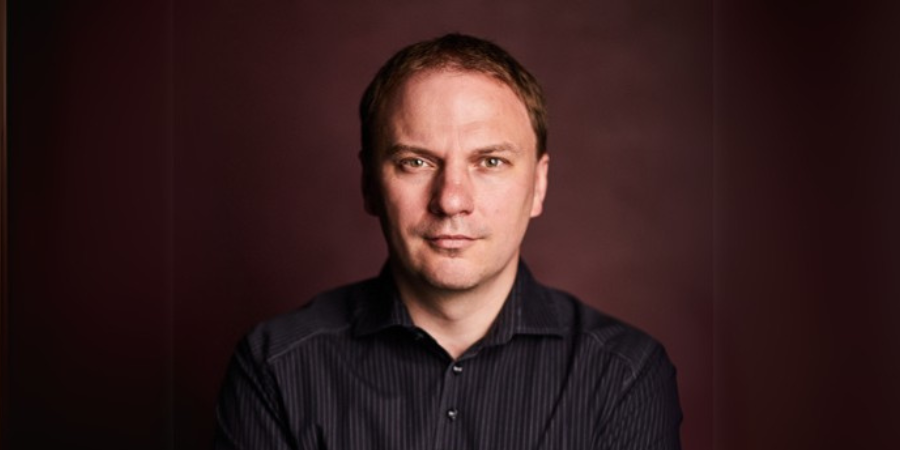Shaping Europe’s future through research and policy - An interview with Martin Kahanec#
Professor Martin Kahanec MAE discusses his work on inequality, migration, and the importance of safeguarding academic freedom.
About Martin Kahanec#
Professor Martin Kahanec MAE is an economist specialising in labour economics, public policy, inequalities, migration, and EU mobility. He is a Professor at the Department of Public Policy and the Director of The Shattuck Center for Human Rights at the Central European University (CEU) Vienna, a founder and the Scientific Director of the Central European Labour Studies Institute (CELSI) and a research affiliate at the University of Economics
(CEU) Vienna, a founder and the Scientific Director of the Central European Labour Studies Institute (CELSI) and a research affiliate at the University of Economics in Bratislava. He has held advisory roles with international organisations such as the World Bank
in Bratislava. He has held advisory roles with international organisations such as the World Bank , European Commission
, European Commission , and European Court of Auditors
, and European Court of Auditors , as well as national governments, including his service on Slovakia’s COVID-19 Economic Crisis Management Council.
, as well as national governments, including his service on Slovakia’s COVID-19 Economic Crisis Management Council.
In January 2025, Professor Kahanec was appointed as the Academia Europaea (AE) Class Chair for Social and Related Sciences. Alongside this new role, he joins the AE Board of Trustees and serves as an Honorary Vice-President for his five-year term.
Read the interview#
Congratulations on your appointment as the new Class Chair for Social and Related Sciences, as well as your positions on the Board of Trustees and as Honorary Vice-President. What are your key priorities in these roles?
I am also committed to advancing AE’s strategic positioning as a scientific authority both in Europe and globally. This can be achieved through initiatives like SAM/SAPEA, which bridge scientific expertise with policymaking in the EU, and through the engagement with the G7 and G20 formats, which enable scientific advice for tackling key global economic and political challenges. At the same time, I see safeguarding academic freedom and institutional resilience as paramount, particularly in the face of rising democratic backsliding. This involves advocating for the independence and integrity of academic institutions worldwide, supporting researchers and institutions under threat, and promoting multilateralism to uphold the rule of law and evidence-based policy making.”
What areas are you currently focusing on in your research, and what motivates this work?
What drives me is the belief that research should serve the broader public interest by contributing to prosperity, social justice and cohesion, the rule of law, and democratic governance. By bridging academic insights with policy action, I aim to give back to society and address some of the most pressing challenges of our time, from labour market inequalities to migration and post-conflict recovery.”
You are active in science advice work, which is a priority of AE also. What contribution do you think the social sciences make to science advice? What are the main challenges and opportunities for the social sciences in this regard?
Social sciences provide the tools to understand these dynamics. For instance, in economics, even with a breakthrough innovation—such as in my classroom example of a new breed of sheep that produces 50% more wool—the ultimate impact depends on the economic responses of producers (will they work even harder to reap the benefits of the new technology, or, as we have seen historically, reduce their effort and instead enjoy leisure and family time?), market equilibrium effects, and even political interventions, such as tariffs or taxes. Bridging the gap between technological innovations and their broader societal impacts is where social sciences are indispensable.
The main challenge for social sciences in science advice is ensuring that their insights are fully integrated into innovation and research and innovation policies alongside natural and technical sciences and the humanities. However, there is also an opportunity here: as societal acceptance and behavioural dynamics become more widely recognised as key to addressing global challenges like climate change and inequality, social sciences are uniquely positioned to integrate insights from all disciplines and translate them into effective and just policy proposals.”
You’ve said you’re keen to safeguard academic freedom and institutional resilience. What does this involve, and could AE play a role?
AE can – within the scope of its legal mandate and mission – play a crucial role here by strengthening multilateral partnerships among academic institutions, EU member states, and global organisations. By strengthening this multilateral and integrated fabric of institutions, AE can contribute to fostering an ecosystem where academic freedom is safeguarded, which is an increasingly important endeavour in challenging political climates.
Furthermore, AE’s ability to convene experts across disciplines and regions gives it a unique platform to support institutions under threat, share best practices, and amplify the voices of those working to defend academic integrity worldwide.”
 .
.For further information please contact AECardiffHub@cardiff.ac.uk
 .
.


